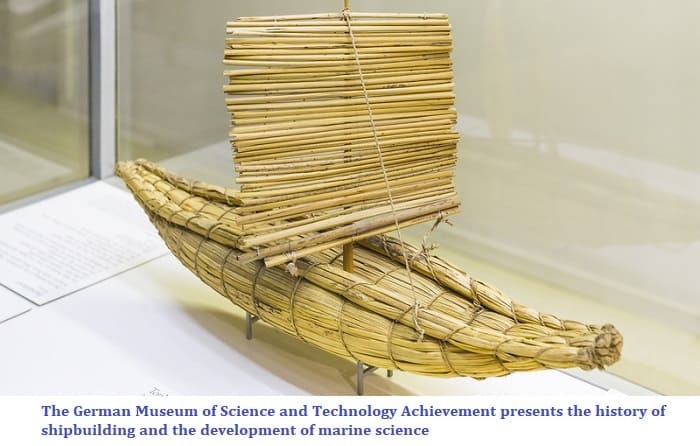

Anthropology of Technology is a branch of anthropology that studies human societies, cultures, and technology interactions. This interdisciplinary field examines the historical development of technology, its use and meaning within different cultures, and the ethical and philosophical implications of technology and its impact on human life.

By exploring the relationship between human culture and technology, the anthropology of technology sheds light on the ways in which technology shapes human behavior and values, and how it has transformed society throughout history.
With the rapid pace of technological change and its increasing impact on human life, studying the anthropology of technology is more relevant than ever. It seeks to provide a nuanced understanding of technology’s role in shaping human culture and society and to guide the responsible development and use of technology in the future.
The study of the historical development of technology is central to understanding the evolution of human societies and cultures. The earliest forms of technology can be traced back to the invention of the wheel in ancient civilizations, which had a profound impact on transportation and commerce.
The industrial revolution of the 18th and 19th centuries marked a major turning point in the history of technology, with the introduction of innovations such as the steam engine, the spinning jenny, and the power loom.
The 20th century saw an acceleration of technological development, with the advent of electricity, automobiles, and other innovations that transformed society and paved the way for the digital age. Understanding the historical development of technology is essential for gaining insights into the ways in which technology has shaped human culture, values, and behavior, and how it will continue to do so in the future.

Technology can have a significant impact on cultural identity and the way that people understand their place in the world. In some cultures, technology is seen as a positive force that brings people together and facilitates communication and commerce. In others, technology is viewed with suspicion or even fear.
The study of technological use and meaning in culture can help to shed light on the ways in which different societies respond to technological change and how these responses shape the future of technology. It explores the impact of globalization on technological use and meaning, as well as the ways in which technology is used to maintain cultural traditions and practices.
Culture can shape the development of technology by determining which innovations are embraced and which are rejected, as well as by shaping the way that technology is used and perceived.
Technology, in turn, can profoundly impact culture, transforming social norms and practices, shaping new forms of communication and commerce, and changing how people interact with the world around them. It also considers the ways in which technology can be used to maintain cultural traditions and practices and preserve cultural heritage for future generations.
It is focused on the ethical and philosophical implications of technology and its impact on human life, values, and behavior. The study of the ethics and philosophy of technology considers questions about the responsible use of technology, the effects of technology on human relationships and society, and the role that technology should play in shaping the future.
It explores the impact of technology on privacy, freedom of expression, and other important values, as well as the ways in which technology can be used to promote social justice and equality. It also considers the ethical implications of emerging technologies, such as artificial intelligence and biotechnology, and the potential for these technologies to transform human life and society.
Ultimately, the ethics and philosophy of technology are crucial for guiding the responsible development and use of technology, and for ensuring that technology serves the best interests of humanity.
In conclusion, the anthropology of technology is a critical field of study that provides insight into the complex relationships between human culture, technology, and society. Through exploring the historical development of technology, its use and meaning within different cultures, and the ethical and philosophical implications of technology, this field offers a deep understanding of the impact of technology on human life.

By looking at technology from a cultural and societal perspective, Anthropology of Technology seeks to promote responsible and ethical technology use and guide its future development. Overall, this field is essential for anyone interested in understanding the role that technology plays in shaping our world and our lives.
Q1. How is Anthropology of Technology different from other fields that study technology?
Ans. Anthropology of Technology takes a unique approach to the study of technology by focusing on its cultural and societal aspects and its impact on human life. Unlike other fields that may focus solely on technology's technical or scientific aspects, anthropology of technology considers the broader picture, including the ethical and philosophical implications of technology.
Q2. What are some key topics explored in Anthropology of Technology?
Ans. Some of the key topics explored in the anthropology of technology include the historical development of technology, its use and meaning within different cultures, and the ethical and philosophical implications of technology. Additionally, this field examines the relationship between human culture and technology, the impact of technology on human behavior and values, and the responsible development and use of technology.
Q3. Why is Anthropology of Technology important?
Ans. Anthropology of Technology is important because technology has a significant impact on human life and society. By understanding the cultural and societal implications of technology, this field seeks to promote responsible and ethical technology use and guide its future development. Moreover, as technology continues to rapidly evolve, the Anthropology of Technology provides valuable insights into how technology is shaping and transforming our world.
Q4. Who should study Anthropology of Technology?
Ans. Anyone interested in understanding the role that technology plays in shaping human culture and society should consider studying Anthropology of Technology. This field is interdisciplinary in nature and may be of interest to students of anthropology, sociology, philosophy, and the humanities, as well as those interested in technology and its impact on human life.